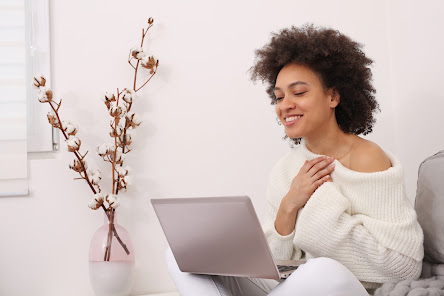Adult therapy can help you cope with a wide variety of negative feelings and emotions. One of the most common, as well as one of the most debilitating negative feelings, is anxiety. You can feel anxious in just about any type of environment, from a college classroom to a corporate boardroom. Although feeling anxious is one of life’s many obstacles, developing acute anxiety can destroy relationships, as well as inhibit professional growth.
Once you leave an adult therapy appointment, how do you cope with your anxiety outside of therapy?
What Are the Symptoms of Anxiety?
Anxiety does not produce the same symptoms for every client. However, feeling nervous represents one of the most common types of anxiety symptoms. You might feel nervous before taking a final examination or when the time comes to undergo a complex medical procedure. A distinct sense of pending doom is one of the more destructive symptoms of anxiety, as the negative outlook can make it difficult to complete the most mundane tasks. You might feel helpless, which is a common symptom that develops after going through a natural disaster. Physical symptoms of anxiety include sweating, trembling, and hyperventilating.
If your anxiety symptoms are considered serious, your therapist might recommend completing EMDR therapy.
Tips for Coping with Anxiety Outside of Therapy
When you exercise the body, you also exercise the brain, which is perhaps the most helpful tip for coping with anxiety outside of therapy. Developing an exercise routine reduces stress, which in turn enhances your mood. Make sure to start an exercise program slowly at first to develop both strength and stamina.
Say No to Drugs and Alcohol
Drugs and alcohol often exacerbate the symptoms of anxiety by triggering certain neurons in the brain. Controlled substances can generate negative emotions such as acute fear and paranoia. Drinking away anxiety only sweeps the negative feeling away for just a few hours. Once you sober up, the symptoms of anxiety return with a vengeance. If you cannot quit drinking or using drugs on your own, consult with a therapist to discover the best option for getting clean.
Significantly Reduce Caffeine Consumption
A couple of cups of coffee in the morning and a few glasses of tea at lunch keep you energized throughout the day. However, caffeine represents one of the most powerful triggers of anxiety symptoms, especially the symptom of feeling constantly nervous. Because caffeine can worsen anxiety symptoms, slowly wean yourself off caffeinated beverages before going cold turkey.
Get More Sleep
You cannot snap your fingers three times and automatically extend sleep time by a few hours. It is more about the quality of sleep than the quantity of sleep. To improve your sleep pattern, do not eat large meals at least four hours before bedtime. Because exercise makes you feel energized, do not perform rigorous, structured exercises at least six hours before you want to fall asleep. If you have trouble sleeping, discuss the issue with your healthcare provider.
The Bottom Line
You cannot expect to cope with anxiety outside of therapy unless you learn more about why you have developed anxiety symptoms. Discussing your anxiety with one of our experienced therapists can help you cope with stress and negative emotions.





